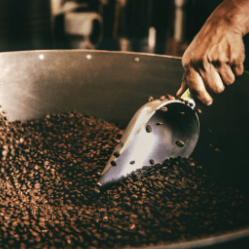
Understanding Sustainable and Ethical Drinking
Sustainability in the context of beverages involves practices that minimize environmental impact, such as reducing carbon footprints, conserving water, and using sustainable packaging. Ethical drinking, on the other hand, focuses on fair trade practices, ensuring that workers are treated fairly and paid justly. Combining both aspects leads to choices that not only benefit the planet but also support the well-being of individuals involved in the production process.
Non-Alcoholic Beverages
- Coffee
Coffee is one of the most popular beverages worldwide, but its production can have significant environmental and social impacts. To make sustainable and ethical coffee choices, look for the following certifications:
-
- Fair Trade Certified: Ensures that coffee farmers receive fair wages and work under safe conditions.
- Organic: Grown without synthetic pesticides and fertilizers, reducing environmental harm.
- Rainforest Alliance Certified: Promotes sustainable farming practices and protects ecosystems.
Brands like Equal Exchange and Ethical Bean Coffee offer products that meet these standards, providing delicious coffee with a clear conscience.
- Tea
Like coffee, tea can also be produced in ways that harm the environment and exploit workers. To ensure your tea is both sustainable and ethical, seek out:
-
- Fair Trade Certified: Guarantees fair wages and ethical treatment of workers.
- Organic: Reduces the use of harmful chemicals in cultivation.
- B Corporation Certified: Indicates the company meets high social and environmental performance standards.
Brands such as Numi Organic Tea and Pukka Herbs are excellent choices for those looking to enjoy their tea sustainably.
- Non-Alcoholic Alternatives
The rise of non-alcoholic alternatives to traditional alcoholic beverages has opened new avenues for sustainable and ethical consumption. Companies producing non-alcoholic wines, beers, and spirits often focus on reducing their environmental footprint and supporting ethical practices. Look for products that emphasize sustainable farming, minimal processing, and eco-friendly packaging.
Brands like Seedlip (non-alcoholic spirits) and Athletic Brewing Co. (non-alcoholic beer) are leading the way in offering environmentally friendly and ethically produced alternatives.
Alcoholic Beverages
- Wine
Wine production has historically been resource-intensive, but many wineries are now adopting more sustainable practices. When selecting wine, consider the following:
-
- Organic Wine: Made from grapes grown without synthetic chemicals.
- Biodynamic Wine: Uses holistic farming practices that enhance biodiversity and ecological balance.
- Sustainable Winegrowing Certification: Indicates a commitment to environmentally responsible viticulture.
Producers like Bonterra Organic Vineyards and Frog’s Leap Winery are known for their sustainable and ethical practices, producing high-quality wines with minimal environmental impact.
- Beer
Beer production can also be resource-heavy, particularly in terms of water and energy usage. To make more sustainable beer choices, look for:
-
- Local Breweries: Reduces transportation emissions and supports local economies.
- B Corporation Certified: Indicates commitment to social and environmental responsibility.
- Organic Beer: Made from organically grown ingredients.
Companies like New Belgium Brewing and Sierra Nevada Brewing Co. are renowned for their sustainability initiatives, including renewable energy use and waste reduction programs.
- Spirits
Spirits production, particularly that of whiskey, rum, and vodka, often involves significant resource consumption. However, there are ways to enjoy spirits more sustainably:
-
- Organic Spirits: Made from organically grown ingredients.
- Fair Trade Certified: Ensures that the farmers and workers involved are treated fairly.
- Eco-Friendly Distilleries: Utilize renewable energy, water conservation methods, and sustainable packaging.
Brands like FAIR. (Fair Trade spirits) and Square One Organic Spirits are excellent choices for those seeking ethically produced liquors.
Making Sustainable and Ethical Choices
- Research and Educate Yourself
Understanding the certifications and practices behind your favorite drinks is crucial. Take the time to research brands and their commitment to sustainability and ethics.
- Support Certified Products
Look for certifications like Fair Trade, Organic, and B Corporation when shopping for beverages. These labels are indicators of a product’s adherence to high environmental and ethical standards.
- Choose Local and Seasonal
Buying locally produced beverages reduces transportation emissions and supports the local economy. Additionally, choosing seasonal products can further reduce the environmental impact.
- Reduce, Reuse, Recycle
Opt for beverages with minimal and recyclable packaging. Support brands that use eco-friendly packaging materials and have robust recycling programs.
- Advocate and Spread Awareness
Encourage your favorite brands to adopt sustainable and ethical practices. Share your knowledge with friends and family to promote conscious consumption. Don’t forget to consume alcohol with moderation to ensure responsible and safe drinking.
Conclusion
Making sustainable and ethical drinking choices is not just a trend but a necessary shift towards a more responsible and conscientious lifestyle. By choosing products that prioritize environmental sustainability and ethical practices, we can enjoy our favorite beverages while supporting a healthier planet and fairer world. Whether it’s the morning cup of coffee or an evening glass of wine, every choice counts. Let’s raise a glass to a more sustainable and ethical future!